Archaeological Institute of America
Deadline: April 1, 2025
The Outstanding Public Service Award recognizes exceptional contributions that promote public understanding of, interest in, and support for archaeology and the preservation of the archaeological record.
Individuals, organizations, institutions, or corporations may be nominated to receive the Public Service Award. Individuals need not be members of the AIA. At the discretion of the reviewing committee, the award may or may not be presented annually.
Nominations may be made by any AIA member or AIA committee. They should include a detailed statement of the candidate’s contributions meriting recognition in a form suitable for use in a citation.
Completed nominations and all materials should be received by Institute Headquarters at the address below no later than April 1 for the award to be presented at the following Annual Meeting.
The Cultural Heritage Committee will review nominations and make a recommendation to the Governing Board for their approval by October. In November, AIA Staff will contact all nominators regarding the status of their nomination. The winner will be celebrated at the Awards Ceremony in January.
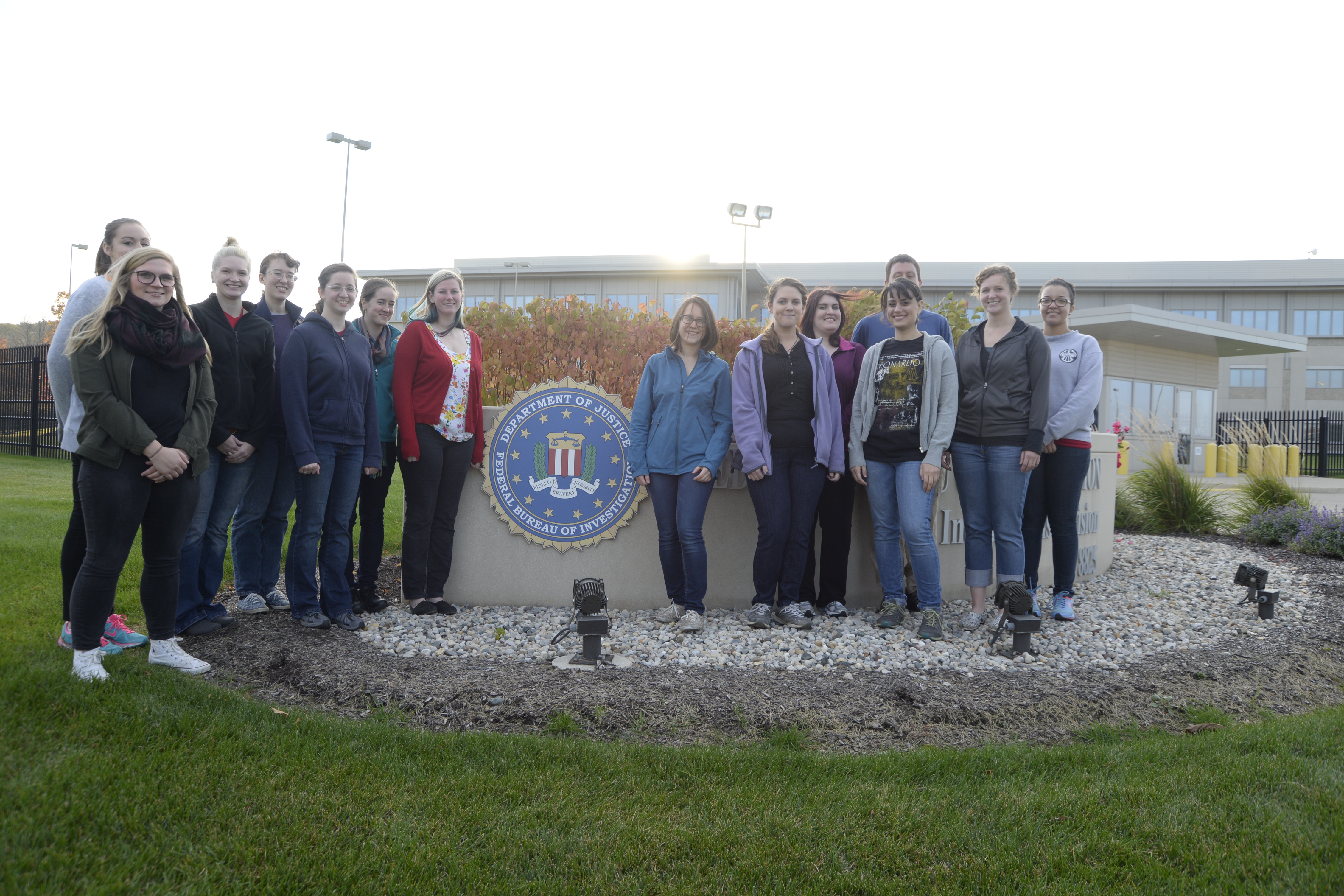
2025
The Archaeological Institute of America is pleased to present the 2025 Outstanding Public Service Award to the FBI’s Art Crime Team and Dr. Holly Cusack-McVeigh (Associate Professor of Anthropology and Museum Studies, Indiana University Indianapolis) and her students.
The AIA recognizes the decade-long collaboration of the FBI’s Art Crime Team, Prof. Cusack-McVeigh, and her students on an investigation into the collections of Don Miller of Indiana and the repatriation of human remains and objects in the United States and abroad. This represents an exemplary collaboration between a federal agency and US academia, as well as engagement and training of students in the context of an investigation.
The award recognizes this unique collaborative effort’s extraordinary accomplishments in working with Native communities, foreign governments, agencies, and cultural institutions to repatriate human remains and cultural property recovered during an investigation into the collections of Don Miller of Indiana, who admitted to illegally or improperly acquiring significant parts of his massive antiquities collection. Prior to his passing in 2015, Miller cooperated with authorities, and he agreed to relinquish items he had acquired in violation of state and federal law as well as other international regulations or agreements.
At the time of the FBI seizure, Miller’s collection amounted to 42,000 objects. Approximately 7,000 of those items were seized or relinquished as a result of being in violation of state, federal, or international regulations or agreements. More than 2,000 human bones from some 500 persons were also seized and returned or are in the process of repatriation. Objects related to the Native American Graves Protection and Repatriation Act (NAGPRA) have also been repatriated to communities of origin or transferred to cultural institutions (with the agreement of the respective tribes) to complete the required processes for return. Furthermore, working with a range of expert partners and foreign governments or communities, the team completed international repatriations to Canada, Cambodia, China, Colombia, Mexico, Ecuador, New Zealand, Papua New Guinea, Spain, and Haiti.
The case has now been officially closed, and the repatriations are either complete or in process. The AIA recognizes that this is a timely moment for celebrating the team’s extraordinary efforts in this historical case of illicit antiquities investigation, repatriation, and establishment of heritage justice and applauds the efforts of all those involved.
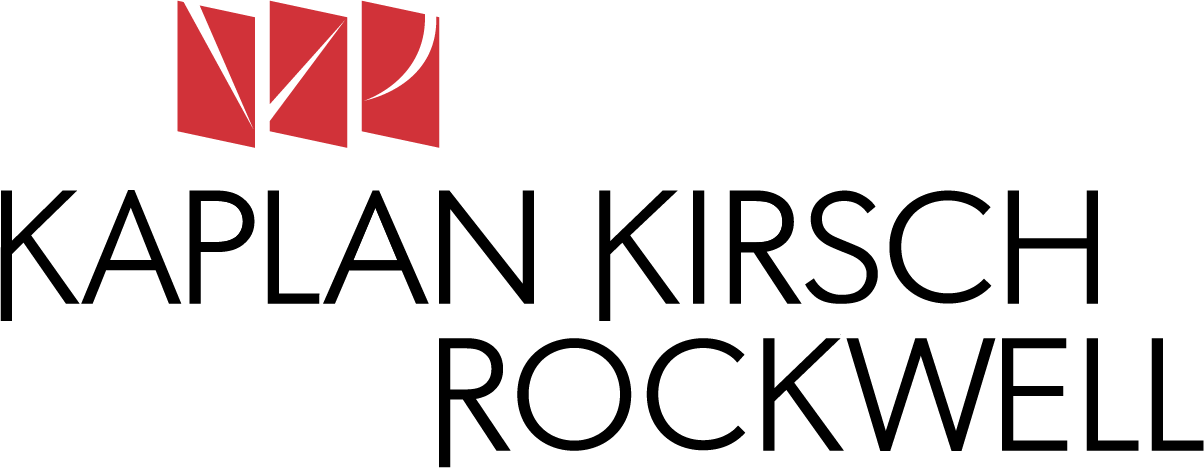
2024
The Archaeological Institute of America is pleased to present the 2024 Outstanding Public Service Award to the law firm of Kaplan, Kirsch, Rockwell.
Kaplan, Kirsch, Rockwell has represented the AIA, along with the American Anthropological Association and Society for American Archaeology, in litigation concerning the Bears Ears and Grand Staircase-Escalante National Monuments in Utah on a pro bono basis since 2018.
Both Bears Ears and Grand Staircase-Escalante National Monuments were declared under the 1906 Antiquities Act. Grand Staircase-Escalante by President Clinton in 1996 and Bears Ears by President Obama in 2016. Both monuments, and the 1906 Antiquities Act itself, were challenged in 2017 by President Trump when he attempted to drastically reduce the size of the monuments, thereby severely reducing the protection of archaeological heritage, one of the goals of the 1906 Act.
The 1906 Antiquities Act is a foundational piece of legislation for the protection of archaeological heritage in the United States that the AIA was instrumental in drafting. For over a hundred years, the Antiquities Act has enabled the President of the United States to protect archaeological landscapes through national monument designation.
In early 2018, Kaplan, Kirsch, Rockwell undertook representation of the three archaeological organizations by mapping out a strategy to pursue in opposing the attempt to significantly reduce the size of these national monuments. While President Biden subsequently restored the boundaries of the national monuments, the Biden Administration is being sued by the State of Utah and others in a challenge to the Antiquities Act itself and whether or not the President is limited to designating only known archaeological sites as protected monuments or wider archaeological landscapes that contain numerous archaeological sites, both known and unknown. Kaplan, Kirsch, Rockwell continues to represent us tirelessly in this ongoing challenge to the preservation of archaeological sites.
The firm, and especially its attorneys Sara Judkins and Lori Potter, has pursued the cause of preservation selflessly and tenaciously over the past six years and have spent countless hours working to maintain the integrity of these monuments and to preserve their archaeological value. The outcome of the ongoing litigation will determine, in large measure, the extent of archaeological protection that can be achieved through the Antiquities Act. The ability of the three archaeological organizations to have our voices heard and our fundamental policy of protecting archaeological heritage furthered is due to the efforts of Kaplan, Kirsch, Rockwell and its attorneys and for this, we find the firm to be a worthy recipient of the Archaeological Institute of America’s 2024 Outstanding Public Service Award.
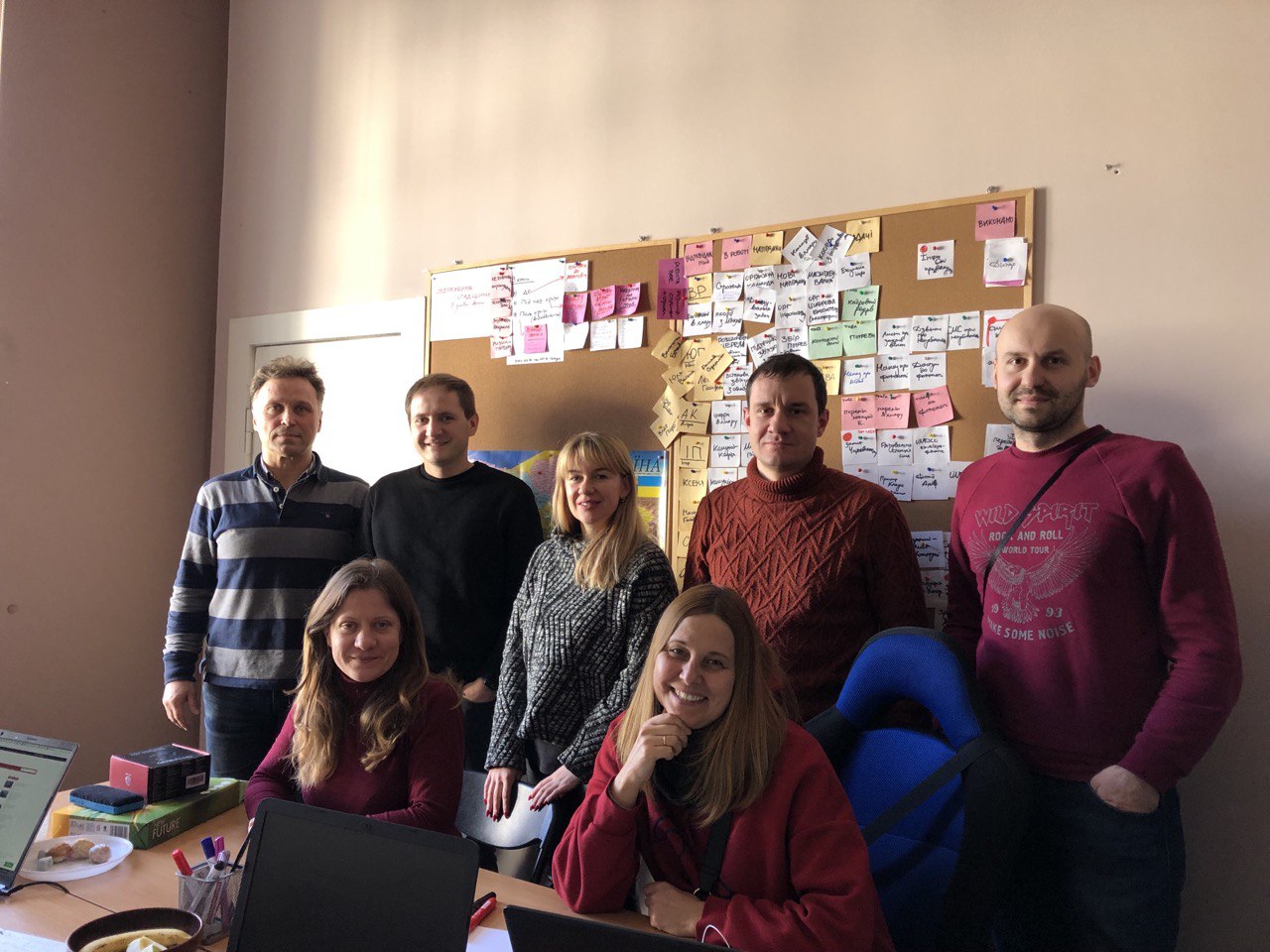
2023
The Archaeological Institute of America is pleased to present the 2023 Outstanding Public Service Award to the Ukrainian Heritage Emergency Response Initiative.
The Ukrainian Heritage Emergency Response Initiative (HERI) is a volunteer initiative launched in the days following the invasion of Ukraine by Russia. Since February 2022, HERI has been at the forefront of Ukrainian efforts to protect the country’s museums, cultural institutions, and archaeological sites, which continue to be attacked and looted by Russian military forces. HERI has offered assistance to cultural institutions across the country and to their employees; undertaken emergency response efforts; and acted as a coordination point between government authorities, the non-governmental sector and international organizations, and the international community. HERI has taken on the daunting responsibility of protecting cultural heritage for Ukraine, and through these efforts, for the rest of the world.
The core of the HERI team was formed by the National Museum of the Revolution of Dignity in Kyiv, the Tustan State Historical and Cultural Reserve near Lviv, and two supporting non-governmental organizations. It is directed by two distinguished heritage leaders: museum professional and folklorist Ihor Poshyvailo and archaeologist Vasyl Rozhko. Together, they have assembled a team of cultural heritage professionals and public volunteers who are committed to safeguarding the country’s cultural sites and collections.
Initially, HERI focused on assisting in the evacuation of museum collections from the eastern areas of the country to safe storage facilities in western Ukraine. HERI worked with museums to prepare, pack, and relocate collections, while providing financial and technical assistance. By June 2022, sixty-eight museums, archives, and libraries had received material assistance through HERI’s auspices. HERI also established a contact hot line for museum workers and cultural institutions in Ukraine, which continues to offer advice for legal, organizational, security and other issues.
HERI’s work is not without significant risk. In March 2022, a truck with humanitarian aid for Chernihiv also carrying emergency museum supplies was shelled by Russian forces. The driver and accompanying volunteer were killed. Through this award, the AIA Cultural Heritage Committee also honors their memory.
Few organizations have had the ability to make such a profound impact on the preservation of cultural heritage during war, let alone coordinate country-wide efforts over such a short period of time. HERI’s considerable determination and persistence against overwhelming odds are an inspiration. For HERI’s tireless and admirable efforts to protect the cultural heritage of Ukraine, we find the organization to be a worthy recipient of the AIA’s Outstanding Public Service Award.
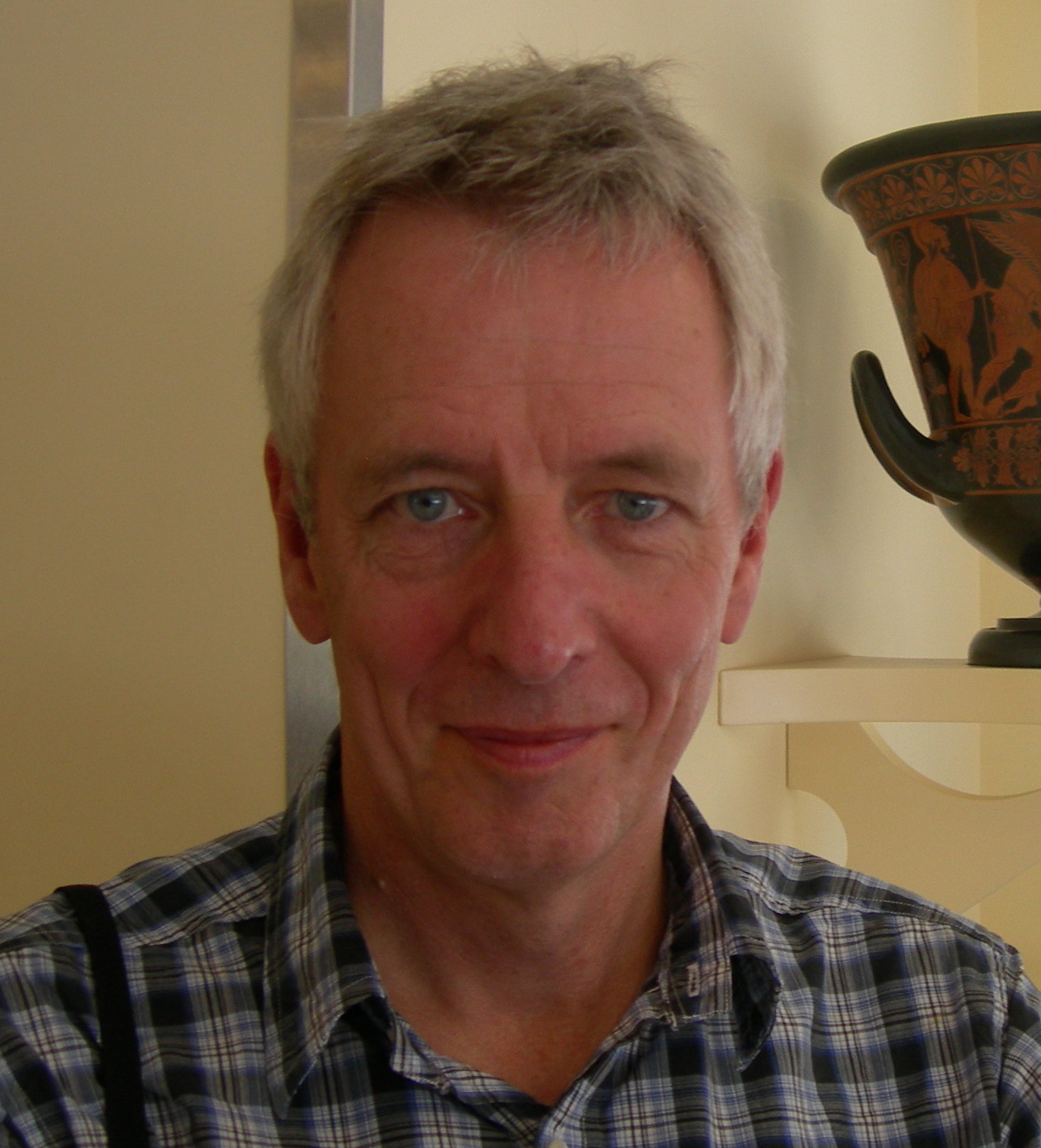
2022
The Archaeological Institute of America is pleased to present the 2022 Outstanding Public Service Award to Dr. Neil Brodie.
Dr. Neil Brodie is a Senior Research Fellow on the Endangered Archaeology of the Middle East and North Africa (EAMENA) Project at the University of Oxford. His archaeological career has included work on projects in the United Kingdom, Greece, and Jordan. He has held positions at the British School at Athens, the McDonald Institute for Archaeological Research at the University of Cambridge, where he was Research Director of the Illicit Antiquities Research Centre, Stanford University’s Archaeology Center, and the Scottish Centre for Crime and Justice Research at the University of Glasgow. He is a member of the UK Committee of the Blue Shield, an expert member of the Global Initiative against Transnational Organised Crime, a founding member of the Trafficking Culture public outreach portal, and a Corresponding Member of the Archaeological Institute of America.
Dr. Brodie is a prolific scholar, whose work has mainstreamed the study of the illicit antiquities trade. He was co-author (with Jennifer Doole and Peter Watson) of the report Stealing History, commissioned by the Museums Association and ICOM-UK to advise upon the illicit trade in cultural material. He also co-edited Archaeology, Cultural Heritage, and the Antiquities Trade (with Morag Kersel, Christina Luke and Kathryn Walker Tubb, 2006), Illicit Antiquities: The Theft of Culture and the Extinction of Archaeology (with Kathryn Walker Tubb, 2002), and Trade in Illicit Antiquities: The Destruction of the World’s Archaeological Heritage (with Jennifer Doole and Colin Renfrew, 2001), and has published over 100 scholarly articles about the illicit antiquities trade as well as his archaeological research in Cyprus and Greece.
Dr. Brodie began working on the problem of the illicit antiquities trade as a research focus when few other archaeologists were willing to devote their careers to the issue. His work has advised governments, including the ratification of the 1954 Hague Convention in the United Kingdom. Dr. Brodie has contributed to our knowledge about the cultural, criminal, and economic aspects of the illicit trade in cultural objects as well as the legal and ethical contexts of scholarly engagement with this trade. His innovative scholarship has framed serious questions about archaeological ethics, which are now a staple for undergraduate and graduate education in archaeology. He continues to serve as a mentor to young archaeologists interested in the illicit antiquities trade, including early career scholars in Syria and Iraq, who are seeking to address rampant looting in their home countries.
Few people have Dr. Brodie’s breadth of knowledge on the nature and scope of the global illicit antiquities trade or have made such a significant scholarly contribution. Throughout his career, Dr. Brodie has displayed considerable determination, diligence, and persistence to draw the attention of our field to the consequences of the illicit antiquities trade. In this work, he has been a tireless champion for preservation of archaeological heritage and is a worthy recipient of the AIA’s Outstanding Public Service Award.
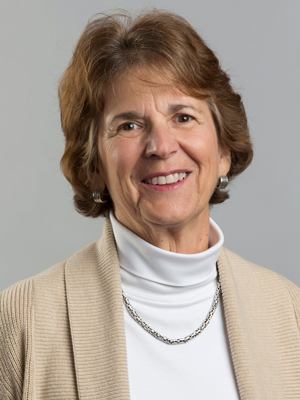
2021
The Archaeological Institute of America is pleased to present the 2021 Outstanding Public Service Award to Dr. Nancy C. Wilkie.
As the William H. Laird Professor of Classics, Anthropology and the Liberal Arts at Carleton College, Dr. Wilkie taught archaeology and Greek among other subjects from 1974-2013. Her archaeological career has included work on projects in Greece, Egypt, Nepal, and Sri Lanka. She has served on the Board of the Register of Professional Archaeologists. Dr. Wilkie served as President of the Archaeological Institute of America from 1999-2003. Her service on the AIA’s Conservation and Site Preservation Committee began in 2009, and in 2017 she became the Chair of the Committee. When Dr. Wilkie stepped down as AIA President, the Nancy Wilkie Lectureship in Archaeological Heritage was established in her honor.
A founding Board member of the U.S. Committee of the Blue Shield (USCBS), Dr. Wilkie served as its Secretary from 2006-2013, and as its President since then. The Blue Shield is the internationally recognized symbol of cultural heritage to be protected during armed conflict. The national committees work to further protection by engaging in training, public educational and legislative initiatives. In her role as President of USCBS, Dr. Wilkie has overseen the expansion of the US national committee in these efforts. Dr. Wilkie also served for three years as a board member of the Blue Shield International, where comparable efforts are carried out in the international forum.
From 2003 to 2020, Dr. Wilkie served on the Cultural Property Advisory Committee (CPAC) of the U.S. Department of State—an 11 member group of experts appointed by the President of the United States to advise on requests from foreign governments for import restrictions on their illicitly exported archaeological and ethnological property in accordance with the Convention on Cultural Property Implementation Act and the 1970 UNESCO Convention on the Means of Preventing and Prohibiting the Illicit Import, Export and Transfer of Ownership of Cultural Property. She was appointed to CPAC by President Bush in 2003 and 2005, and again by President Obama in 2011 and 2017.
Few people have the breadth of knowledge of archaeological heritage that Dr. Wilkie has and few have given greater public service in the preservation of archaeological heritage world-wide. From her long-term presence on CPAC to her work with the US Committee of the Blue Shield and service on the Board of Blue Shield International, Dr. Wilkie has served with creativity, persistence, diligence and dedication, always knowledgeable about an impressive array of subjects and often able to persuade others to her opinion. She has been a tireless champion for preservation of the archaeological heritage in the public, governmental and academic spheres.
We are delighted to honor Dr. Wilkie with this year’s Outstanding Public Service award.

2020
The Archaeological Institute of America is pleased to present the 2020 Outstanding Public Service Award to Professor Patty Gerstenblith. Educated in both archaeology and law, Gerstenblith earned her A.B. in Classical and Near Eastern archaeology from Bryn Mawr College, her Ph.D. in art history and anthropology from Harvard University, and her J.D. from Northwestern University. Currently, she is Distinguished Research Professor of Law at the DePaul University College of Law and Director of its Center for Art, Museum and Cultural Heritage Law.
Gerstenblith’s intellectual talents, creative initiative, and passionate determination have made her a leader in the protection of cultural property in the United States and around the world. She was appointed to serve as Public Representative and Chair of the Cultural Property Advisory Committee in the U.S. Department of State by President Clinton and President Obama, respectively. Champion of many heritage protection programs and policy initiatives, she is a Founding Director and Secretary to the Board of the U.S. Committee of the Blue Shield, and Founding President of the Lawyers’ Committee for Cultural Heritage Preservation.
Gerstenblith’s publication record is vast and influential. Her casebook, Art, Cultural Heritage, and the Law, now in its fourth edition, is the standard text for law school students. Her articles provide crucial legal analysis and arguments for the protection of cultural property from looting and other threats, the treatment of heritage destruction as a war crime, and the implementation of international conventions.
The fiftieth anniversary of the 1970 UNESCO Convention on the Means of Prohibiting and Preventing the Illicit Import, Export and Transfer of Ownership of Cultural Property provides the opportunity to recognize Prof. Gerstenblith’s outstanding contributions to the Archaeological Institute of America and its mission to preserve and protect world cultural heritage. We are delighted to honor her with the AIA’s Outstanding Public Service award.
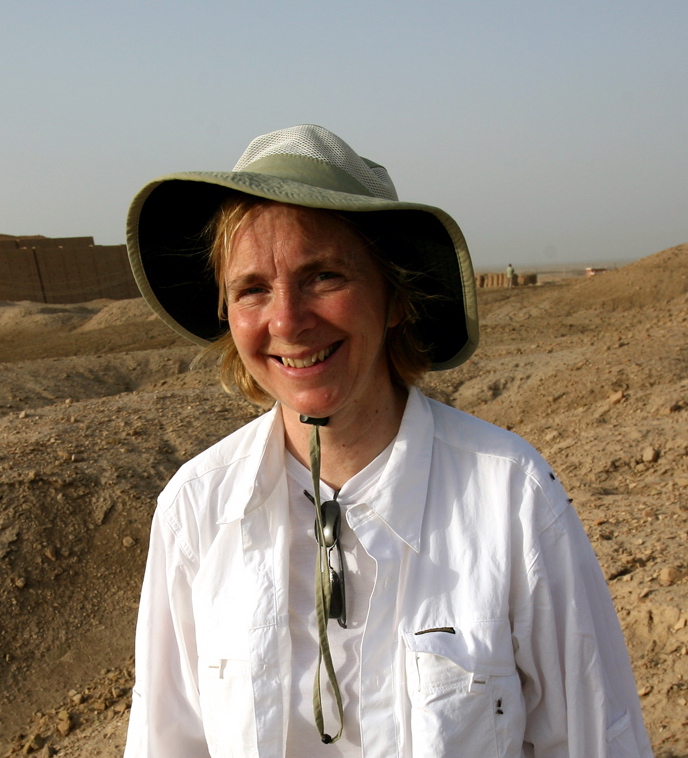
2019
The Archaeological Institute of America is pleased to present the 2019 Outstanding Public Service Award to Dr. Laurie W. Rush.
A 2011 Fellow of the American Academy in Rome, Rush serves as Native American Affairs Liaison for the 10th Mountain Division at Fort Drum. There she oversees the U.S. Army’s legal obligations to protect cultural resources on over 100,000 acres of military land, including archaeological sites, historic villages, and farmsteads.
Dr. Rush has promoted cultural heritage preservation in three important ways: by advocating for dialogue between military and academic stakeholders, by advancing military policies to protect cultural property, and by developing training programs in heritage for deploying military personnel.
Dr. Rush has also helped reform NATO policies for the protection of cultural heritage, including preparing a civil-military cooperation document that will guide future efforts about heritage preservation and better protect the world’s cultural heritage from accidental and deliberate destruction in the event of armed conflict.
For her tireless advocacy with the U.S. military and NATO, as well as her work in bringing together archaeologists and military personnel to protect the world’s cultural heritage, The Archaeological Institute of America is delighted to award Dr. Laurie Rush the 2019 Outstanding Public Service Award.
2018
2017
2016
2015
2014
2013
2012
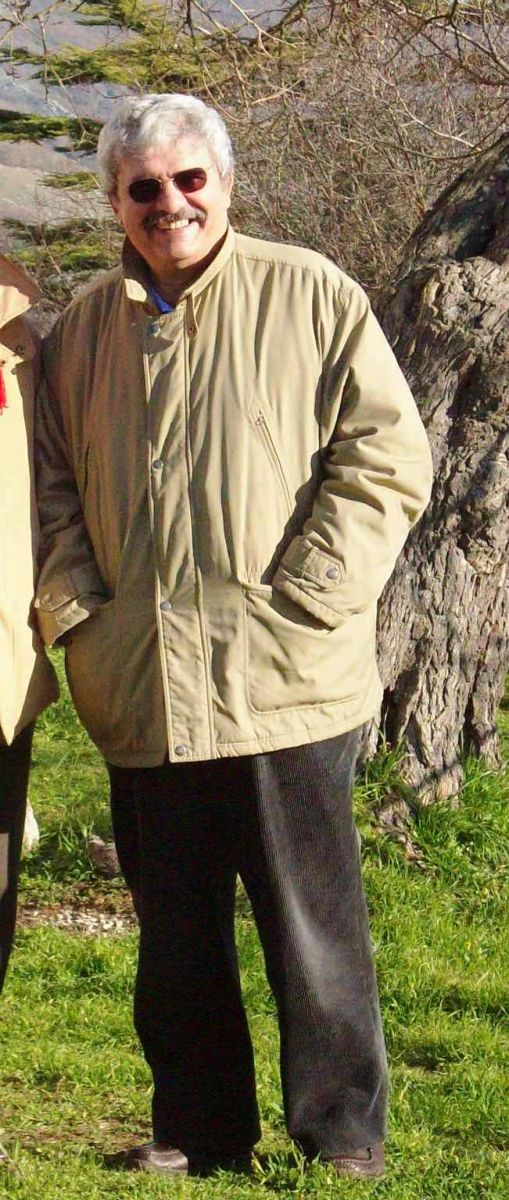
2011
Since 2007, Stefano De Caro has served as General Director for Archaeology within the Italian Ministry of Culture, the capstone of an extraordinary career devoted to public service. Prior to this, he was the Regional Superintendent for Archaeological Heritage of Campania, director of excavations at Pompeii, Archaeological Superintendent in Naples, and Special Superintendent in Naples in the aftermath of the Naples earthquake. Throughout, he has been a fierce defender of Italy’s cultural patrimony.
Stefano De Caro is a model for modern cultural diplomacy. As General Director, his efforts have focused on fostering collaboration between Italian and foreign institutions, facilitating long-term loans of Italian art and antiquities, and identifying practical solutions for making cultural information available on the Internet. Under his leadership, Italy has made an unprecedented number of loans to international exhibitions; thanks to him, U.S. audiences have enjoyed such shows as Pompeii and the Roman Villa (at the National Gallery, Washington, D.C., and Los Angeles County Museum of Art) and The Chimaera of Arezzo (at the Getty Villa, Malibu). As a result, hundreds of thousands of museum visitors have had the chance to experience ancient Greek, Roman, and Etruscan art and archaeology firsthand. In the wake of returns of artifacts to Italy from museums in the United States, he has been a proponent of forward-looking international partnerships that involve joint scientific research on objects, sites, and monuments. During the course of his career, De Caro has produced a significant number of publications in the field of archaeology, lectured widely, and served as editor-in-chief for many scientific journals.
It is in recognition of these many accomplishments that the Archaeological Institute of America awards its 2011 Outstanding Public Service award to Stefano De Caro.
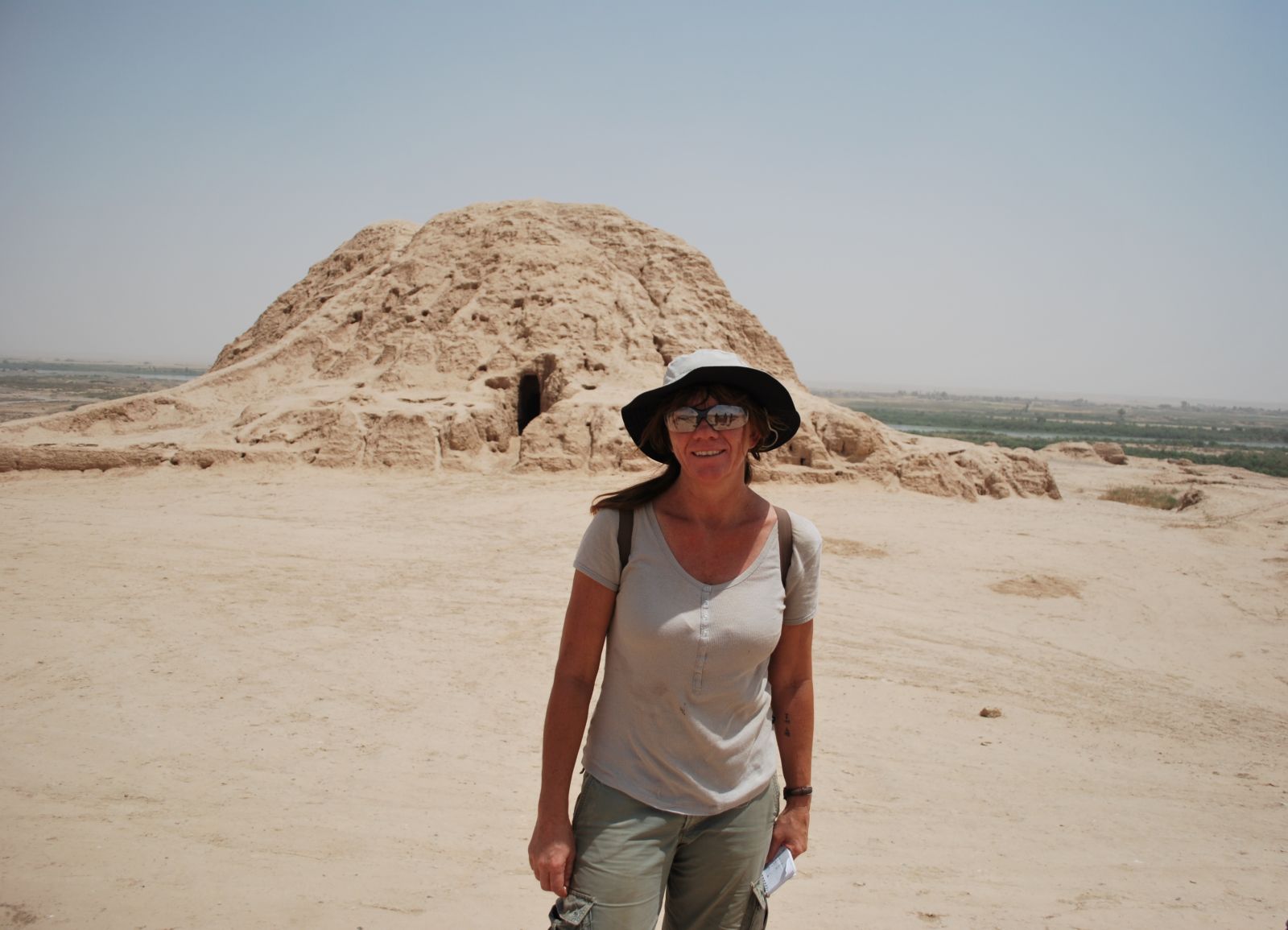
2010
Since 2006, Diane Siebrandt has served as the State Department’s Cultural Heritage Liaison Officer at the U.S. Embassy in Baghdad, Iraq. Prior to that, she served as a forensic archaeologist for the Department of Justice’s Iraq Mass Grave Project. In all her work, Siebrandt has succeeded in bringing together Iraqi and American civilians, academics, military personnel, and government officials in the effort to preserve Iraq’s archaeological resources for future generations.
Siebrandt has spearheaded a wide range of initiatives in Iraq. She worked to bring American museums and the U.S. National Park Service into partnership with the Iraqi State Board of Antiquities and Heritage to establish a conservation center that will provide training to Iraqi museum professionals. She has helped procure State Department funding for the World Monuments Fund to develop a sustainable management plan for the site of ancient Babylon. At the Assyrian imperial capital of Ashur, she directly participated in the efforts of the U.S. military and Iraqi archaeologists to document ongoing threats to this important site. She has escorted many American and other foreign archaeologists on surveys to document the looting of Iraqi sites and to highlight the efforts of local archaeologists and private citizens to protect the resources of their own country. And she has made introductions that allow university researchers to assist the U.S. military in reducing damage to Iraq’s many thousands of small but nonetheless invaluable ancient settlements. Hers is a diplomacy of personal contact that has achieved remarkable and very visible results.
In recognition of her tireless efforts to preserve the archaeology of Iraq, the Archaeological Institute of America honors Diane Siebrandt with its 2010 Outstanding Public Service Award.
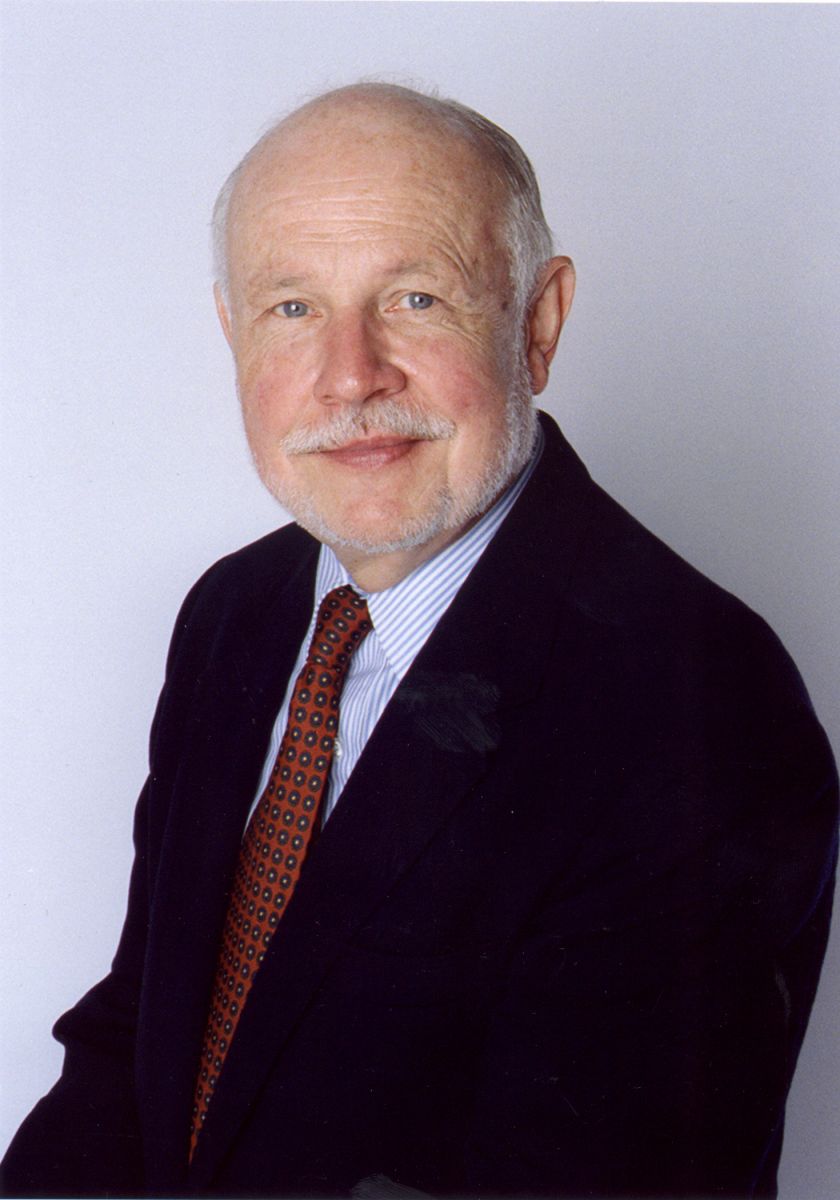
2009
For more than three decades, John Noble Wilford’s engaging and accurate reporting on new archaeological finds and research has contributed to the general public’s understanding of the science and excitement of archaeology. As senior science writer and editor at the New York Times, Wilford has contributed more than 500 articles on archaeological subjects. His archaeological stories span the globe, from “Scientists Use Radar to Chart Cambodia’s Ancient Ruins” (13 February 1998) to “Ancient Indian Site Challenges Ideas on Early American Life” (19 September 1997). In recent years, he has written on the impact of modern war on ancient artifacts, bringing to public attention the looting of the Baghdad Museum.
In addition to writing countless newspaper articles since beginning his career in 1956 at the Wall Street Journal, Wilford has authored eight books, including The Mapmakers (London 1981), The Riddle of the Dinosaur (New York 1985), and The Mysterious History of Columbus (New York 1991). He has received two Pulitzer Prizes for his newspaper writing.
In 2003, Wilford had this advice for aspiring science writers: “Knowledge of science is of no value if one cannot express and explain in clear English and in an arresting style.” John Noble Wilford’s own career shows that he has put this advice into masterful practice and thus makes him a worthy recipient of the Archaeological Institute of America’s 2009 Outstanding Public Service Award.
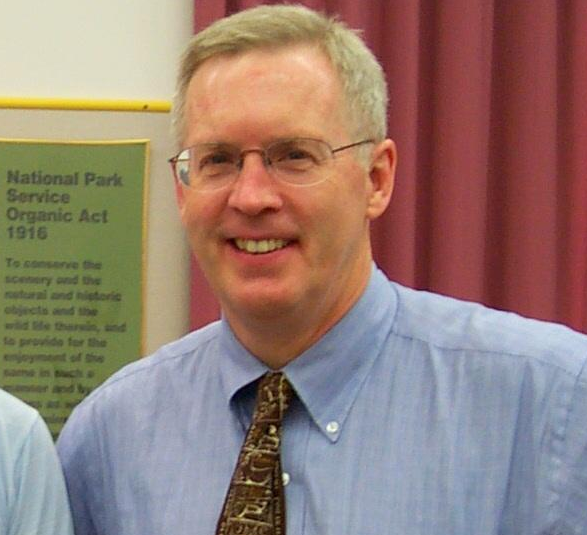
2008
In his work with the National Park Service and in his broader professional involvements, Francis P. McManamon’s career has been distinguished by his commitment to public service. As chief archaeologist and manager of the archaeology program of the National Park Service, he is nationally recognized as a leader in promoting public outreach, heritage education, and citizen involvement in archaeology and cultural heritage preservation.
By means of an ambitious program of public lectures, symposia, and publications, McManamon has brought issues such as the Kennewick Man, archaeological looting, the Native American Graves Protection and Repatriation Act, the Antiquities Act, and the importance of public outreach and education before a broad and varied public. As a tireless advocate for the protection of archaeological resources, he has addressed audiences throughout the United States and abroad in venues ranging from historical societies to rotary clubs to universities and law schools.
McManamon’s publications are equally wide ranging, both in terms of the archaeological topics they address and in the varied audiences they attract. His most recent publication, The Antiquities Act: A Century of American Archaeology, Historic Preservation, and Natural Conservation (Tucson 2006), with coeditors David Harmon and Dwight Pitcaithley, won the New Mexico Heritage Preservation Book Award and has been praised for its broad appeal (in Archaeology Magazine) and as “a core addition to academic and community library reference collections” (The Midwest Book Review).
McManamon has also developed several highly specific outreach programs for government attorneys and managers. His “Overview of Archaeological Protection Law,” a four-day course presented annually in conjunction with the Office of Continuing Legal Education of the Department of Justice, provides one example of his commitment to educating those outside the field about the value of archaeology.
In addition to awards from the National Park Service and the Department of the Interior, Francis P. McManamon has received the Presidential Recognition Award of the Society for American Archaeology, the Department of Justice Environment and Natural Resources Division’s Certificate of Commendation, and the Special Achievement Award of the Society of Professional Archaeologists. He has also served on the AIA’s Governing Board.
Francis P. McManamon’s career exemplifies his dedication to public outreach in archaeology. It is entirely fitting for the Archaeological Institute of America to recognize his many achievements with the 2008 Outstanding Public Service Award.
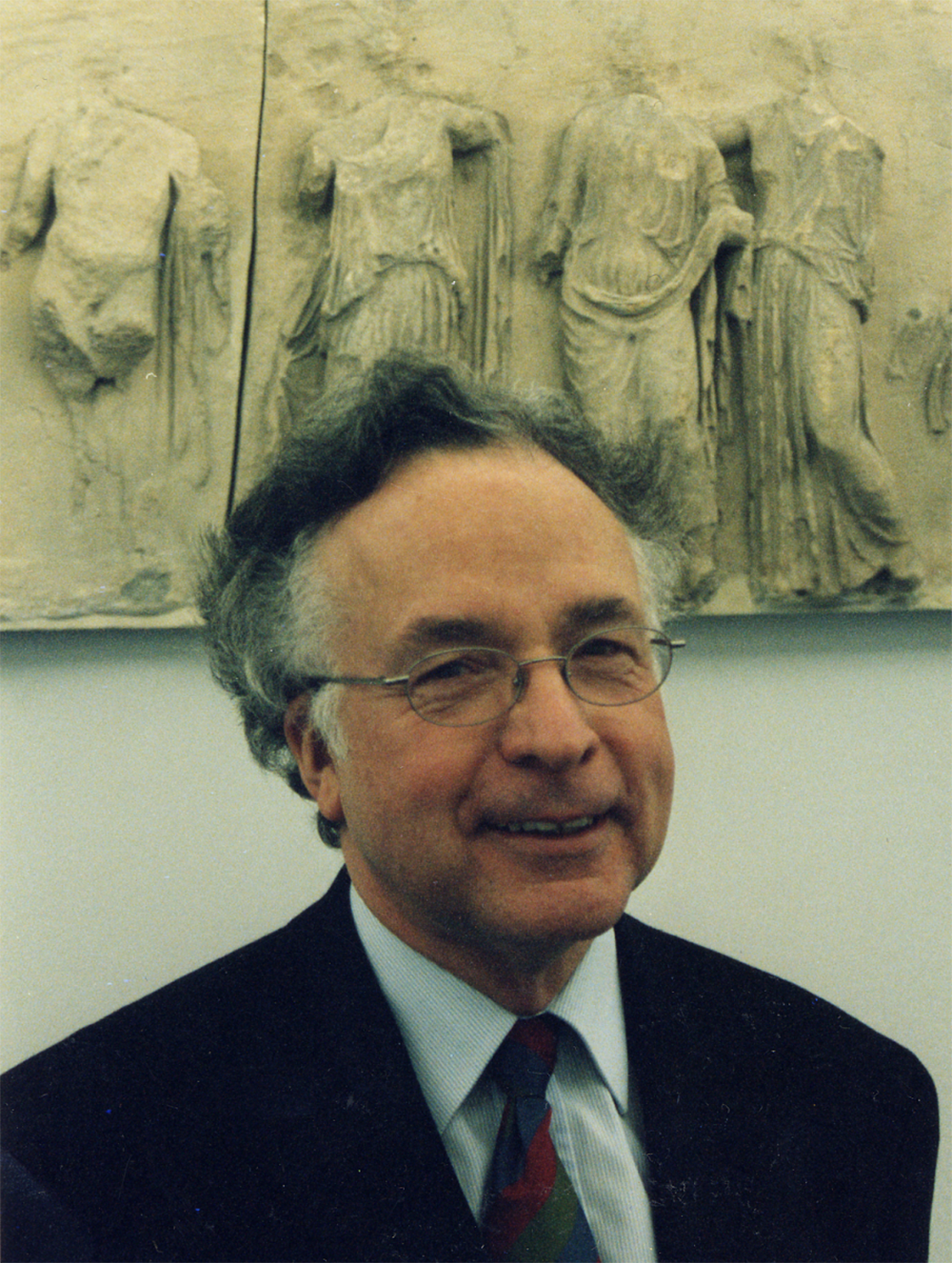
2007
In the course of his long and distinguished museum career, Wolf-Dieter Heilmeyer has exemplified the professional and personal values that the Outstanding Public Service Award was created to honor. As director of the Antikensammlung der Staatliche Museen in Berlin, he brought one of the world’s most exceptional archaeological collections ever more vitally into the contemporary cultural sphere. Contributing to the master plan for reorganizing Berlin’s Museum Island and conceiving of its celebrated “archaeological promenade” are two of his most notable achievements. Wolf-Dieter Heilmeyer oversaw the restoration of the great Pergamon Altar, expanded online access to collections, and organized numerous highly acclaimed exhibitions. His engagement with ancient art extends beyond the gallery, both to the classroom, as a professor at the Free University of Berlin since 1977, and to the pursuit of fieldwork, as an excavator for three seasons at Olympia. Despite the intense demands of museum administration, Wolf-Dieter Heilmeyer has remained a prolific scholar. He is the author of more than a dozen books that elucidate the arts, cultures, and legacy of classical antiquity.
For his energetic leadership in the swiftly evolving field of museum ethics, Wolf-Dieter Heilmeyer has earned Orders of Merit from the Republics of Italy and Greece. He played a decisive role in the restitution of a sarcophagus looted from Ostia Antica, prompting Italian archaeologists to reciprocate with generous long-term loans. In the contentious arena of archaeological heritage, his subsequent success in mobilizing a cooperative network of German and Italian museums is paying handsome dividends. This critical initiative facilitates conservation and exchanges of information while bringing remarkable works of art and fresh discoveries to wider audiences. Based on practical solutions, such pioneering museum partnerships respond to the sorts of challenges that institutions with antiquities collections must confront. We are indebted to this director for a dynamic example of sound museum practice in a leading market country. Proactive and collaborative, Wolf-Dieter Heilmeyer has convened major conferences and crafted international agreements to address the illicit antiquities trade. One such landmark document, the 2003 Berlin Resolution, calls upon the museum and art market communities to adopt the highest standards for acquisitions and urges the framing of comprehensive ethical codes for archaeologists. In lasting ways, his work has revitalized the role of museums as a public trust. His career has been devoted to a mission that museum professionals and archaeologists share: creative and responsible stewardship of archaeological collections.
In recognition of exceptional achievements in museum leadership and for promoting international cooperation to preserve and celebrate archaeological heritage in the public interest, the Archaeological Institute of America is honored to present its 2007 Outstanding Public Service Award to Wolf-Dieter Heilmeyer.
2006
The Archaeological Institute of America is proud to present the 2006 Award for Outstanding Public Service to the Illicit Antiquities Research Centre. The Illicit Antiquities Research Centre (IARC) was founded in May 1996 in response to increasing concern about both the destruction of archaeological sites and ancient monuments throughout the world and the resulting loss of historical knowledge. Working under the auspices of the McDonald Institute for Archaeological Research at the University of Cambridge, the Centre raises awareness about the problem of looting and its connection to the illicit antiquities trade through public education and media campaigns. Emphasizing that the true value of an artifact is irreparably diminished by the loss of cultural information caused by its unrecorded divorce from context, the IARC has attempted to create a climate of opinion that will discourage the collection of illicit antiquities. IARC has a small but extremely dedicated staff including Colin Renfrew, Neil Brodie, Chris Scarre, Augusta McMahon, Peter Watson and Jenny Doole.
IARC has been active in supporting national legislation and international agreements for the protection of cultural heritage. The recent ratification by the United Kingdom of the 1970 UNESCO Convention on the Means of Prohibiting and Preventing the Illicit Import, Export and Transfer of Ownership of Cultural Property reflects a growing awareness among British politicians, the museum and dealer communities, and the general public about the need to safeguard the world’s archaeological patrimony. IARC has contributed in no small way to this change in perception regarding the preservation of the past. IARC’s thorough research is frequently cited by journalists.
IARC also organizes conferences that bring together archaeologists, government and law-enforcement officials, and museum representatives from around the world to exchange information about illicit trade and potential solutions to the problems. One such gathering in 1999 resulted in the establishment of the International Standing Committee on the Traffic in Illicit Antiquities and the passing of the Cambridge Resolution, in which a group of international experts agreed to join forces to combat the illicit trade and raise public awareness about it.
In 2000 IARC published Stealing History: the Illicit Trade in Cultural Material — a report commissioned by the Museums Association and ICOM-UK — and in 2001, the highly influential Trade in Illicit Antiquities: the Destruction of the World’s Archaeological Heritage. Both these books have become standard references in the field, used by students, archaeological professionals, the media, and national and international policy makers. In addition, IARC maintains an active and frequently visited website (http://www.mcdonald.cam.ac.uk/IARC/home.htm) and publishes a regular newsletter, Culture Without Context (http://www.mcdonald.cam.ac.uk/IARC/cwoc/contents.htm).
In its mission and activities IARC is unique in the world and has had a major impact in its ten years of existence. In recognition of its record of notable achievement, the Archaeological Institute of America presents the Outstanding Public Service Award for the year 2006 to the Illicit Antiquities Research Centre.
2005
The continuing crisis in Iraq has placed at risk an entire chapter in human history. Recognizing that many individuals and international organizations have vigorously responded to the challenges of protecting Iraqi sites and restoring cultural institutions, the Archaeological Institute of America wishes to single out the particular efforts of John Malcolm Russell, Professor of Art History and Archaeology at the Massachusetts College of Art.
Following upon the first Gulf War in 1991, John Russell warned of the devastation taking place in the ancient cities of Mesopotamia. He urgently pressed the U.S. government, non-governmental organizations, and archaeological colleagues to take action to protect Iraqi sites. For the most part he was ignored, Cassandra-like, and even those who were sympathetic dismissed his concerns on the grounds that nothing could be done.
John Russell, however, did not lower his voice, publishing numerous articles in magazines such as Archaeology and Natural History. His efforts at alerting the wider public culminated in his important book, The Final Sack of Nineveh: the Discovery, Documentation, and Destruction of Sennacherib’s Throne Room at Nineveh, Iraq (New Haven, 1998). In these works Russell’s meticulous research called attention to Iraqi antiquities appearing on the international market and traced their origins back to specific sites and monuments. His earlier book, From Nineveh to New York: the Strange Story of the Assyrian Reliefs in the Metropolitan Museum and the Hidden Masterpiece at Canford School (New Haven, 1997), also helped bring to the attention of a wide audience the hidden mechanisms and deleterious effects of the antiquities trade. As war with Iraq loomed in late 2002, Russell warned of a potential catastrophe of looting and urging that preventive measures be taken. He provided leadership and expertise to archaeological colleagues who at last were aroused to action. Russell played a central role in approaches to the Pentagon and began an intensive series of interviews with the press and other media. Following the U.S. invasion and the looting of the Iraqi National Museum, Russell became the most visible spokesman for archaeology and history at risk, giving many radio and television interviews and writing articles. In all of these presentations he vividly conveyed to the general public both what had been lost and why it was so important. His visible anger and sorrow only served to strengthen his message.
When asked to join the Coalition Provisional Authority in Iraq, Russell showed his willingness to take extreme risks in backing up his words with action. From September 2003 until June 2004 he served as Deputy Senior Advisor, then Senior Advisor, to the Iraq Ministry of Culture, Coalition Provisional Authority. During this work he continued his efforts to educate those around him about the importance of preserving Iraq’s archaeological heritage. With few resources he pressed for better protection of sites and practical efforts at restoring Iraqi museums. He also served as an inspiring leader for the staff of the Iraqi National Museum as they attempted to move toward the future. As reconstruction has progressed, Russell has raised awareness of the need to incorporate site protection in rebuilding contracts. Since returning to the U.S., he has continued to speak out in public forums in defense of the preservation of sites and the restoration of museums. In recognition of generous and effective service, carried out under extraordinary and often dangerous circumstances, the Archaeological Institute of America presents John Malcolm Russell its Outstanding Public Service Award for the year 2005.
2004
Few individuals embody the spirit of public service more completely than He Shuzhong, a tireless advocate for the remarkable ancient patrimony of China. As Director of the Division of Legislation and Policies at the State Administration of Cultural Heritage in Beijing, Mr. He is a skillful administrator who applies his professional expertise and personal devotion to draft national legislation and promote international cooperation. Representing China in numerous international venues, he participated in the early negotiations for the 200I Convention on the Protection of Underwater Cultural Heritage and shepherded the proposal for China’s accession to the 1995 UNIDROIT Convention on Stolen or Illicitly Exported Cultural Objects. His contributions have not only been productive in the realm of international policy, they have also made a tangible impact on local communities. Constantly on the move throughout the thirty provinces of China over the past twenty years, He Shuzhong has facilitated training seminars for many thousands of customs and security personnel, curators, archaeologists, art dealers, lawyers, magistrates, and school students. Citizens have been mobilized as stewards of their own heritage, working as his eyes and ears on the ground to protect a cultural legacy of global importance.
He Shuzhong’s mission is to close the gap between policy and practice. His successes are notable. Working with minuscule resources, he founded Cultural Heritage Watch in 1998. Private non-profit initiatives were still a novelty when Cultural Heritage Watch was established, and it remains the only NGO in its field in mainland China. In just a few years, He Shuzhong and his associates have built an effective organization that advises on the conservation of historic monuments, offers university lectures on heritage law, and engages journalists to enhance media coverage of the issues. Through their efforts, antiquities markets and construction projects near fragile sites are carefully monitored and abuses are registered. Frequent progress reports circulate on the internet, launching a boldly critical dialogue on threats to heritage from development, environmental change, tourism, and commercialization.
Challenges to the safeguarding of historic sites in a vast country, abundantly endowed with the remains of a brilliant civilization, are manifold. Appreciation of China’s extraordinary contributions to world culture, however, is hampered by widespread clandestine excavation. This occurs just at the moment when our understanding of Chinese antiquity is being transformed by a rapidly expanding recognition of its originality, contexts, and interconnections. The government of China works strenuously to confront the challenge of protecting and preserving its heritage. He Shuzhong’s determined efforts to stem the illicit trafficking of art and artifacts have been instrumental in restitution claims for such national treasures as a large stone Bodhisattva from Shandong Province and a wall relief from the tomb of Wang Chuzhi in Hebei Province. His brand of advocacy also entails great risk and sacrifice. During video filming of tomb-robbery in progress in Inner Mongolia, a confrontation with the looters forced He Shuzhong and fellow activists into the icy Laoha River. This is but one of many anti-looting efforts in which he has invested significant time and personal financial resources. He Shuzhong has demonstrated tremendous courage in the face of danger, indifference, and opposition. He represents living proof that a committed individual can make a real difference.
In recognition of his exceptional achievements in promoting international public awareness and appreciation of archaeological heritage, the Archaeological Institute of America is honored to present its 2004 Outstanding Public Service Award to He Shuzhong of the People’s Republic of China.
2003
Since 2001, Lyndel Prott has been the Director of UNESCO’s Division of Cultural Heritage, which carries out projects to protect the world’s cultural heritage, including the safeguarding of archaeological sites and monuments and the strengthening of museum operations. Before her promotion to Director in 2001, Dr. Prott headed the Division’s International Standards Unit, which is responsible for the legal protection of the cultural heritage, and which provides the Secretariat for the UNESCO Intergovernmental Committee for Promoting the Return of Cultural Property to Its Countries of Origin or Its Restitution in Case of Illicit Appropriation.
Dr. Prott received a Dr. Juris from the University of Tübingen, Licence spèciale en Droit international from The Brussels Free University, and a B.A. and LL.B. from the University of Sydney. From 1991 to 1996, she held a Personal Chair in Cultural Heritage Law at the University of Sydney; she has held academic positions at Syracuse University, the Hague Academy of International Law, and Stanford University; and she has acted as a legal consultant to UNESCO, ICOM, the Council of Europe, and the Commonwealth of Australia. Among the many honors Dr. Prott has received is Officer of the Order of Australia.
She is the author of more than 150 publications in the fields of law and the cultural heritage, jurisprudence, and international and comparative law. Her books include the major, multi-volume work, Law and the Cultural Heritage, written with her husband Patrick O’Keefe, and the Commentary on the UNIDROIT Convention.
A tireless proponent of the protection and return of displaced cultural property, Dr. Prott was a member of the UNIDROIT Study Group on the International Protection of Cultural Property and helped promote the adoption of the UNIDROIT Convention on Stolen or Illegally Exported Cultural Objects (1995). She has sought and won additional State Parties to the 1970 UNESCO Convention on the Means of Prohibiting and Preventing the Illicit Import, Export and Transfer of Ownership of Cultural Property. Recently, she was instrumental in the successful effort to adopt the UNESCO Convention on the Protection of the Underwater Cultural Heritage (2001).
In connection with the 1995 New York symposium, “The Spoils of War,” Dr. Prott proposed eight “Principles for the Resolution of Disputes concerning Cultural Heritage Displaced during the Second World War.” Since that time, these principles have been used by governments in negotiations for returns.
Lyndel Prott is one of the most intelligent, energetic, and effective forces in the world today campaigning for the protection of the archaeological and cultural heritage of the world’s peoples. The year 2003 marks the 20th anniversary of the United States’ implementation of the 1970 UNESCO Convention. It is especially appropriate that in 2003 the Archaeological Institute of America has chosen to honor Dr. Lyndel Prott with its award for outstanding public service.
2002
The Archaeological Institute of America is pleased to recognize Nancy Bookidis and Charles K. Williams, II, with the Award for Outstanding Public Service for their important roles in the successful recovery and repatriation of archaeological material stolen from Greece.
On April 12, 1990, thieves broke into the archaeological museum of ancient Corinth and made off with nearly 300 objects, assaulting the night guard, and stealing the museum’s payroll. The theft, the largest ever from a Greek museum, was widely publicized in the press and in a special 1990 issue of IFAReports (Vol. 11:6). Although several of the objects were recovered from a New York antiquities gallery in 1998, it was not until the fall of 1999 that Greek and American authorities were able to make a major breakthrough in the case. On September 7, 1999, FBI agents working in collaboration with Greek police officials recovered the majority of the Corinth antiquities in a Miami storage facility. Three Roman portrait heads were later found in a New York auction house. In January of 2001, 274 of the artifacts were repatriated to Greece from the United States.
The successful recovery of the stolen Corinthian artifacts was clearly a model of international cooperation between Greek and American law enforcement agencies and archaeological authorities. Many individual archaeologists also played an important role in this effort, including those who worked anonymously for many years to keep the memory of the theft alive in the public consciousness. In particular, Nancy Bookidis and Charles K. Williams, II, long-time assistant director and director of the Corinth excavations of the American School of Classical Studies at Athens, took immediate steps in 1990 to provide the Greek Ministry of Culture and Interpol with complete descriptions and photographs of the stolen objects for distribution to law enforcement agencies, museums, galleries, and private collectors. For nearly a decade after the theft, Bookidis and Williams diligently continued to write articles for popular journals about the stolen artifacts, and to keep a sharp watch for any Corinthian material appearing on the art market. After the majority of the stolen material had been recovered in the Miami warehouse, Williams recognized one of the still missing artifacts, a marble head of the god Serapis, in an auction catalogue in New York. As a result of this information, the last three portrait heads were eventually recovered.
The prompt and diligent actions of Bookidis and Williams embody the very spirit of the AIA Code of Professional Responsibilities. Among the special responsibilities of archaeologists, the Code states that they “should anticipate and provide for adequate and accessible long-term storage and curatorial facilities for all archaeological materials, records, and archives” and that they “should treat others at home and in the field with respect and sensitivity. As primary stewards of the archaeological record, they should work actively to preserve that record in all its dimensions and for the long term; and they should give due consideration to the interests of others, both colleagues and the lay public, who are affected by the research.” By demonstrating the importance of detailed and accessible archives, by actively striving to meet the legal criterion of due diligence in the recovery of stolen artifacts, and by educating the public about the illicit trade in antiquities, Bookidis and Williams have truly set new standards for future generations of archaeologists.
For their extraordinary efforts to conserve, preserve, and protect the cultural heritage of the country in which they work, their selfless cooperation with Greek law enforcement authorities and archaeological colleagues, and their efforts to inform the public of the importance of context in archaeological research, the Archaeological Institute of America is proud to honor Nancy Bookidis and Charles K. Williams, II, with this Outstanding Public Service Award.
1998
Walter V. Robinson, journalist, is the first recipient of the Archaeological Institute of America’s Award for Outstanding Public Service. Presented for exceptional contributions to the public understanding of and interest in archaeology, this award is given in recognition of the important series of articles written by Walter Robinson of the Boston Globe on the plunder of archaeological sites.
Walter Robinson has devoted two decades of his professional career to reporting on local, national, and international affairs for the Boston Globe. In addition to serving as the Globe’s bureau chief at Boston City Hall and the Massachusetts State House, he has been the White House and national political correspondent during three Presidential campaigns. Robinson was Middle East Bureau Chief in Jerusalem, reporting on the Persian Gulf War in 1990–1991. The paper’s Assistant Managing Editor since 1993, he has been a roving foreign and national reporter and has written extensively on artworks stolen from victims of the Holocaust during World War II. His articles on the modern-day traffic in antiquities looted from archaeological sites have focused national scrutiny on a problem of worldwide concern.
Walter Robinson’s timely reports on the damaging effects of pillaging to supply the international trade in antiquities explore long-standing conflicts between countries rich in archaeological heritage and U.S. museums. Illuminating the scope and inner workings of the illicit trade through front page coverage of disputed objects from Central America, West Africa, South Italy, and Turkey, Robinson’s skillfully researched articles have brought the cause of archaeology to audiences well beyond the Boston area. Together with Globe reporter John Yemma, he has covered Guatemala’s recent attempts to recover Mayan artifacts, and has written as well about Mali’s pursuit of its plundered patrimony. Two important investigative reports prepared by Robinson on location in Sicily trace artworks allegedly looted from the American excavations at Morgantina to prominent New York collections. Giving voice to divergent perspectives, he demonstrates an impressive ability to elucidate the complex legal and ethical dilemmas that confront collectors, dealers, museums, and archaeologists. Dramatic discoveries of the evidence of past civilizations will continue to thrill audiences, but the probing inquiries of Walter Robinson encourage best practices and will help to safeguard this precious evidence for future generations.
The Archaeological Institute of America is proud to bestow its first Award for Outstanding Public Service on Walter Robinson, in recognition of his commitment to the values of archaeological research, the accountability of public institutions, and the education of the wider public.
Notifications